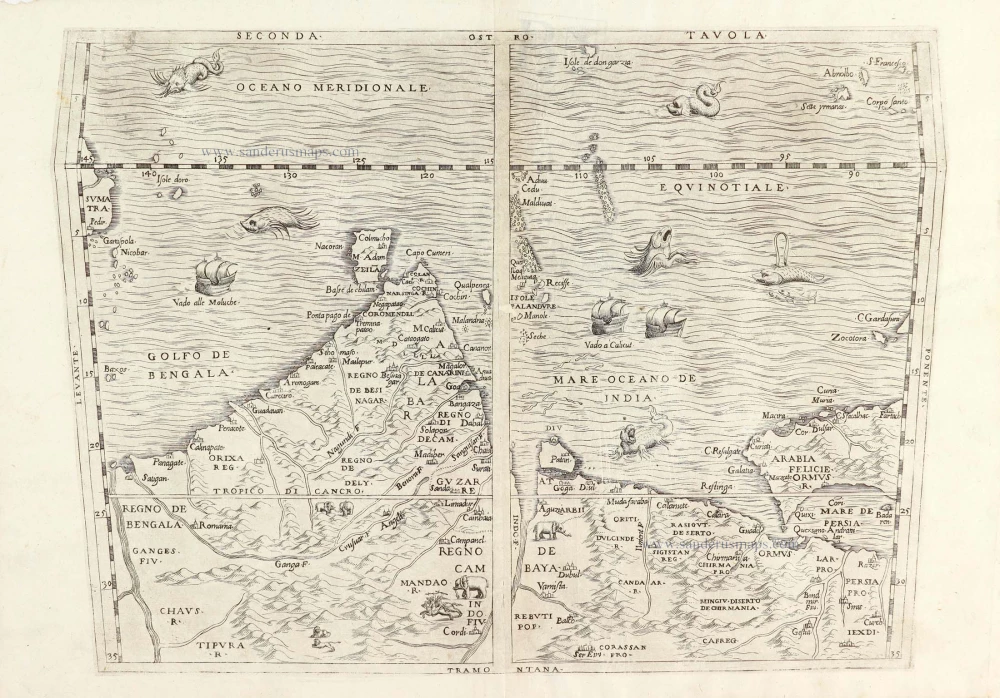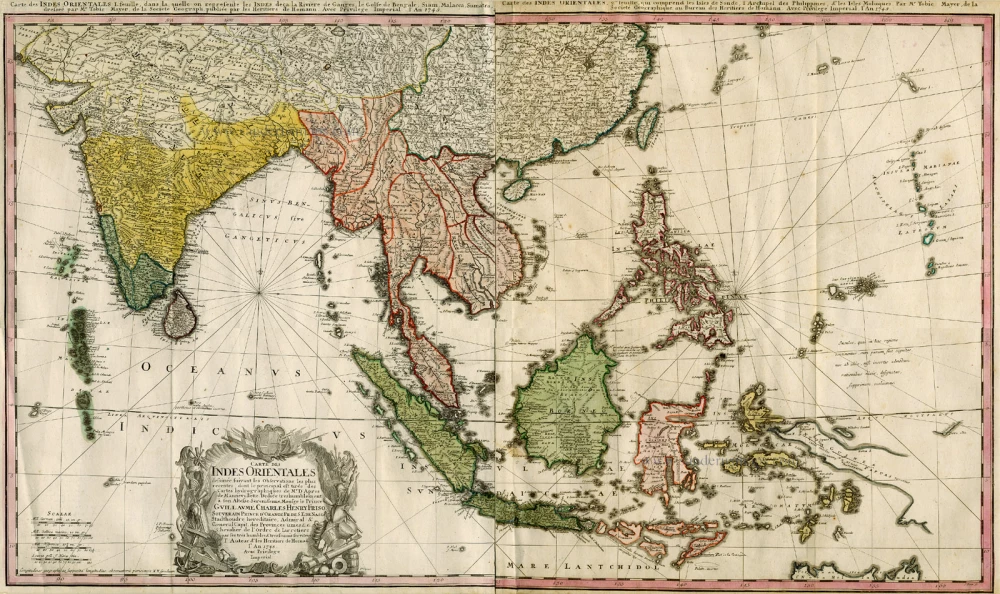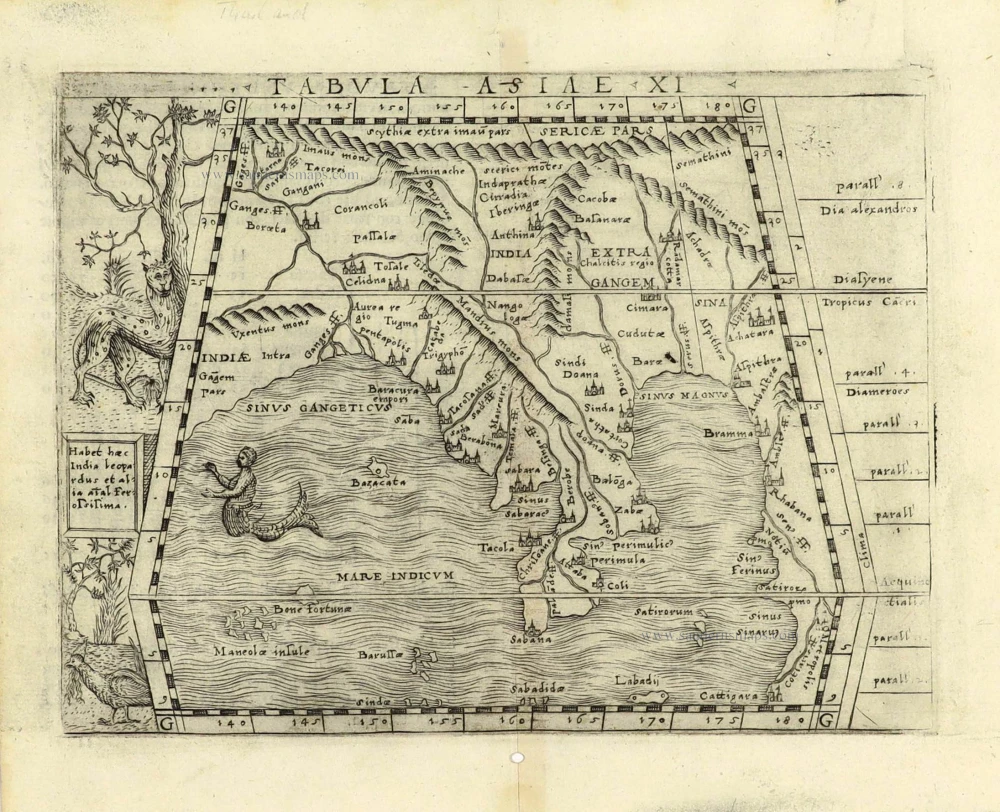Important map.
South Asia by G.B. Ramusio. 1563
Giovanni Battista Ramusio (Treviso, 1485 - Padua, 1557)
Ramusio was the son of Paolo Ramusio, a magistrate of the Venetian city-state. In 1505 young Giovanni took a position as secretary to Aloisio Mocenigo of the patrician Mocenigo family, then served as the Republic's ambassador to France. Ramusio would spend the rest of his career in Venetian service. He was keenly interested in geography, and his position ensured he would receive news of all the latest discoveries from explorers around Europe as they were sent back to Venice. A learned man, fluent in several languages, he began to compile these documents and translated them into Italian, then the most widely understood of the European languages.
Ramusio compiled a collection of voyages which are the most highly valued of the sixteenth century. It is composed of accounts of voyages which had already been published, translated from French, Spanish and Latin, and also of manuscript accounts which appear for the first time. It enjoyed great success, and each of the three volumes appeared in several editions, some containing more narratives than others and minor differences in the maps.
Seconda Tavola.
Item Number: 29488 Authenticity Guarantee
Category: Antique maps > Asia > India - Ceylon
Old, antique map of South Asia by G.B. Ramusio.
Title: Seconda Tavola.
Shows South Asia, from the Persian Gulf to the Ganges.
Oriented to the south.
Cartographer: Giacomo Gastaldi.
Date of the first edition: 1563.
Date of this map: 1563.
Copper engraving, printed on paper.
Map size: 275 x 380mm (10.83 x 14.96 inches).
Sheet size: 310 x 450mm (12.2 x 17.72 inches).
Verso: Blank.
Condition: Wormhole filled: in the centre, left of 'palandure'.
Condition Rating: A.
From: Terzio Volume Delle Navigatione et Viaggi ... Venice, 1563.
Giovanni Battista Ramusio (Treviso, 1485 - Padua, 1557)
Ramusio was the son of Paolo Ramusio, a magistrate of the Venetian city-state. In 1505 young Giovanni took a position as secretary to Aloisio Mocenigo of the patrician Mocenigo family, then served as the Republic's ambassador to France. Ramusio would spend the rest of his career in Venetian service. He was keenly interested in geography, and his position ensured he would receive news of all the latest discoveries from explorers around Europe as they were sent back to Venice. A learned man, fluent in several languages, he began to compile these documents and translated them into Italian, then the most widely understood of the European languages.
Ramusio compiled a collection of voyages which are the most highly valued of the sixteenth century. It is composed of accounts of voyages which had already been published, translated from French, Spanish and Latin, and also of manuscript accounts which appear for the first time. It enjoyed great success, and each of the three volumes appeared in several editions, some containing more narratives than others and minor differences in the maps.



